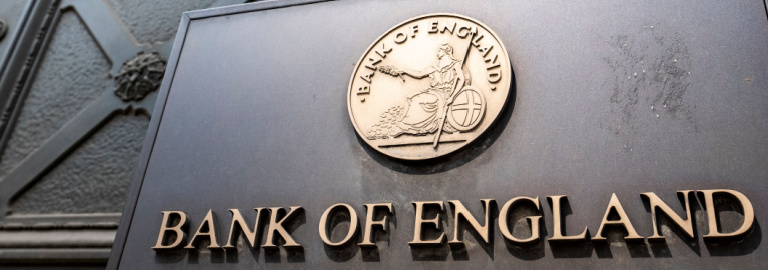Impact of interest rates on businesses will become more visible over the next year, say experts
The Bank of England increased interest rates to 5.25% in August, the highest it has been in 15 years
The Bank of England increased interest rates to 5.25% in August, the highest it has been in 15 years

It is important to see if debt ladened businesses begin to falter as we start to see the full impact of the Bank of England (BoE) interest rate rises, according to Neil Berry, tax partner at MHA.
In August 2023, the BoE’s Monetary Policy Committee (MPC) increased the bank rate to 5.25%, the highest it has been in 15 years. The latest change means interest rates have risen 14 consecutive times since December 2021.
On September 12, Catherine Mann – a member of the MPC – noted it was likely interest rates would need to rise further, during a speech at the Canadian Association for Business Economics.
“In my view, holding rates constant at the current level risks enabling further inflation persistence, which will have to be unwound eventually with a worse trade-off,” she said.
The impact of continuous interest rate rises has been varied across businesses and households, says MHA’s Berry.
“Businesses, large and small have felt the impact of rising interest rates. This has led to an increased number of businesses entering insolvency processes. The same on a personal level. The spectre of debt looms large over the UK economy. That level of indebtedness is already hurting,” he said.
“As lending ages and low interest rates deals are replaced with new, higher interest-bearing debts, the problem for the economy is going to become ever more visible.”
This sentiment was echoed by Tom Pugh, economist at RSM UK, who believes as businesses enter 2024, the negative effect of interest rates is likely to grow heavier. He believes the UK economy will resemble a “seesaw” over the next 12 months.
“On one end will be the recovery in households’ real incomes, driven by falling inflation and a robust labour market. On the other side will be the impact of the huge surge in interest rates that have happened over the last year and a half on households and businesses,” Pugh says.
Recent data released by RSM UK highlights that many middle market businesses in the UK are performing well despite the current economic climate, with sentiment and growth on the up.
The data also revealed that the percentage of companies reporting an expanding workforce rose significantly from 43% to 54%. Additionally, the number of businesses increasing employee salaries also saw a notable jump from 44% to 55%.
While this is a positive for businesses, Pugh believes it could present a problem for the BoE as it grapples with inflationary pressures.
“The Monetary Policy Committee has emphasised that the labour market will be key to its decision to increase interest rates again, so higher pay growth suggests more rate hikes are coming down the track as the MPC may have to do more to suck demand out of the economy,” he says.
‘Resilient’ UK economy
The BoE’s MPC in November 2022 forecasted the UK would face eight consecutive quarters of economic decline, but six months later it admitted there would be no recession at all.
However, the Office for National Statistics (ONS) estimates GDP for July fell by 0.5% following growth of 0.5% in June. The contraction is the largest decline for the UK economy since December 2022. Wet weather and strikes are believed to have impacted spending and activity during this period.
“We’ve not had much economic growth, but we’ve not fallen into recession. So, I think resilience is the right word,” Pugh says.
“In terms of looking ahead, we’re not forecasting a recession, not the base case. But neither are we forecasting very much growth. So, it doesn’t take much at all to tip. Think about going back to that seesaw analogy and it could take the seesaw completely down the other way.”
While some experts may question whether the UK is already in a recession, Berry argues the UK may need to enter one to find its way out of rising inflation so that other controlling factors enter the economy to work in tandem with raised interest rates.
“Recessions are difficult times, but from those times, businesses find new ways of making money in a leaner and more efficient way. Economic uncertainty cuts both ways. Even as it undermines wealth or business performance, it creates new opportunities for growth and investment,” he says.
“Some of the best businesses are started during recessions. And couple a recession to an inventive tax policy that is well managed, we could be staring a bold and profitable, new economic cycle in the face.”